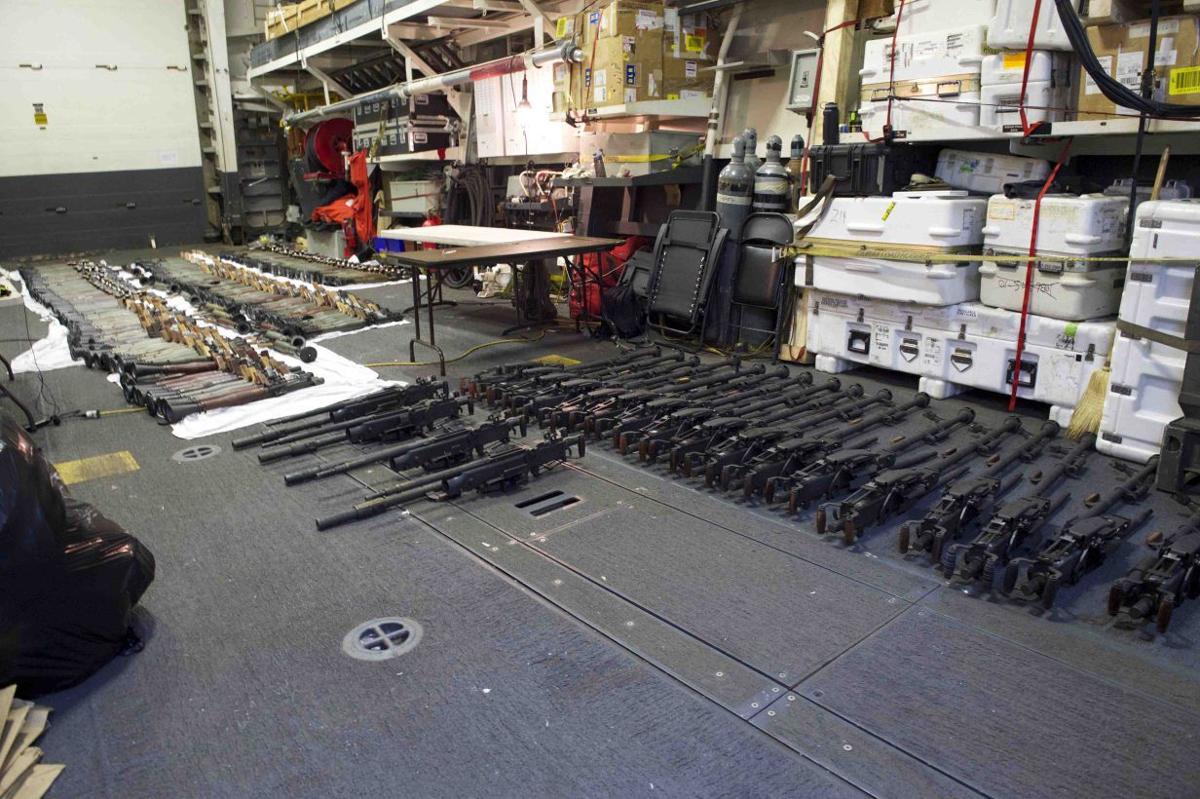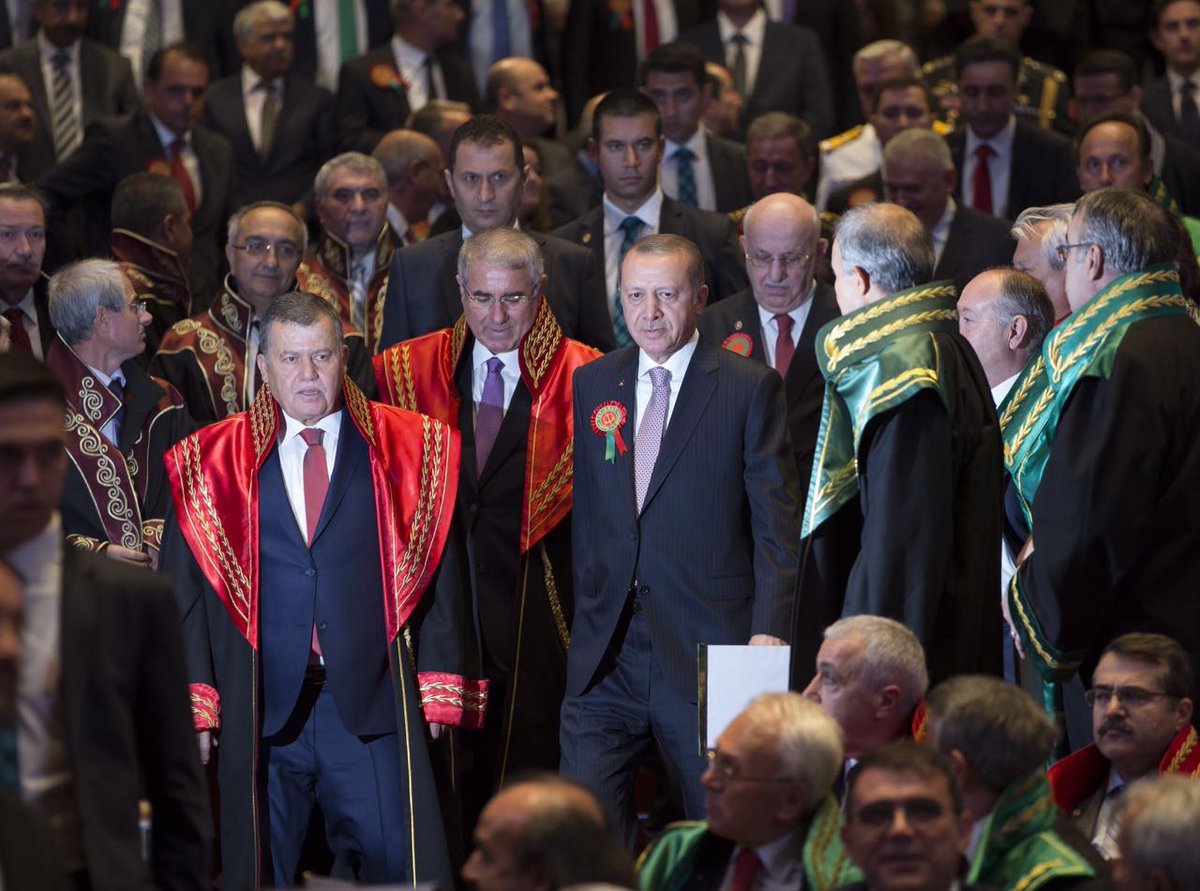[authorbox authorid=”32″ ]
In early January 2019 Libyan authorities seized a container carrying Turkish arms from a ship docking in the port of Misrata. This followed closely on the heals of the discovery just a few weeks earlier of a shipment of Turkish arms brought into the Libyan port of Khoms near the Algerian border, described as ‘extremely disconcerting’ by the local UN mission in light of the UN-imposed arms embargo on Libya, and as ‘an act of war’ by Libyan and Algerian officials. This prompted Turkish foreign minister Mevlut Cavusoglu to deny any involvement on the part of the Turkish state and to set up a joint Turkish-Libyan investigation into the shipments.
This was not the first denial by Ankara of any role in supplying arms to Libyan factions, because these were far from the first suspicious shipments to raise eyebrows. Indeed, a UN report issued in early 2015 listed Turkey as one of a number of countries supplying weapons to various factions in Libya.
In addition to a Yemeni discovery of a ship believed to be Libya bound and carrying Turkish weapons in November 2012, in January 2013 the Greek coastguard intercepted a Libya-bound ship carrying Turkish weapons. In September 2014 Libya intercepted another Libya-bound ship carrying Turkish arms. In November 2014 Greek authorities found 20000 AK47s on a Turkish ship heading towards Libya. In December 2014 Egyptian customs intercepted four containers of Libya-bound weapons from Turkey. In May 2015 a Turkish ship said to be on radio silence was shelled by Libyan forces off Tobruk. They believed it was heading towards the ‘jihadi’ held eastern port of Derna. In September 2015 Greek coastguards seized a Turkish freighter believed to be Libya-bound and carrying weapons.
More recently, in January 2018 Greek coastguards boarded an arms-carrying freighter sailing from Turkey’s Mediterranean ports and which the ship’s captain said was bound for Misrata.
From the outset, middle eastern states have split on who to back in the hopelessly factionalised and fluid Libyan conflict. What is abundantly clear is that Turkey is hostile to the somewhat independent figure of General Khalifa Haftar, head of the Libyan National Army, which controls eastern Libya and the country’s major oilfields. This hostility is heartily reciprocated. Haftar is close to the internationally recognised ‘government’ in Tobruk, but more importantly is backed by Egypt, Jordan and most of the Gulf and other regional states, and courted by Moscow and some western governments. Haftar is committed to ridding Libya of Islamist forces, including Islamic State, al-Qaeda and more localised groups that were formerly affiliated to the now-defunct Libyan Dawn coalition that incorporated Muslim Brotherhood (MB) factions.
Broadly, Turkey, with Qatar, has favoured MB groups in Libya and elsewhere throughout the Middle East region, including in Egypt, Syria, Iraq, Tunisia, and Palestine. In the chaos that is Libya in particular, the lines between MB-affiliated groups and other jihadi groups – including Islamic State – oppositional tribes, local warlords and the like are distinctly blurred and have shifted over time. In any case, such is the stand-off between Ankara and Haftar, the most effective Libyan opponent of such forces, that the Turkish delegation huffily pulled out of a meeting in Palermo, Sicily in November 2018 aimed at bringing together Libya’s more accommodating factions because it was excluded from a session between the other participants and Haftar.
Notwithstanding Turkish denials, and its insistence that it has distanced itself from factions such as the Salvation Front in the port city of Misrata, it is evident that most other regional actors have been sceptical of Turkey’s narrative almost from the outset of the Libyan conflict. This scepticism seems well-placed.
During the early years of the conflict, the Turkish envoy to Libya was the only diplomatic figure to agree to meet with the Libyan Dawn leadership in Tripoli in October 2014 after it had ousted the government of Abdullah al-Thinni. Ankara failed to recognise al-Thinni’s now Tobruk-based government and continued flights into the jihadi-held port of Misrata, causing Libya to withdraw its ambassador to Turkey and to declare a cessation of all dealings with Ankara.
Ankara was also believed to have links with Ansah al-Sharia, which was widely believed to have been behind the fatal attack on the US consulate in Benghazi, which also operated in Syria, and whose leader died in January 2015 in a Turkish hospital. Egypt restricted ground movement between Libya and Turkey and subjected all aircraft plying the route to checks. Haftar threatened to shoot down any Turkish planes entering Libyan air space without permission, and declared all Turks unwelcome.
More recently, in October 2017 the Libyan Attorney-General issued arrest warrants and travel bans against over 800 people for their terrorist links, most of whom were based in Turkey and Qatar, the only Gulf Arab country that had aligned itself with Turkey in the Libyan theatre. In June 2017 al-Thinni’s internationally recognised government banned Turkish firms from operating in the country because of Ankara’s ‘interference’ in Libya’s domestic affairs, as a Libyan army spokesman simultaneously described Turkey, Qatar and Sudan as the ‘triad of terrorism’ in Libya.
Indeed, Sudanese aircraft – widely seen as responsible for delivering arms to Libyan rebels – and personnel were banned from entering Libya in late 2014, although the UN Panel of Experts on Libya reported in March 2016 that Sudanese planes still appeared to be delivering embargoes weapons to Libyan opposition groups, and that Sudan and Turkey, with Tunisia, were the main transit routes for fighters on their way to the Libyan theatre. Wikileaks documents revealed in 2016 the extensive financial and other links with Turkey that were enjoyed by Libyan MB and other jihadi groups.
Inevitably, any involvement in the alleged shipment of arms to rebels in Libya on the part of the Turkish government is denied and deniable. Such transactions always are. It is shadowy private Turkish companies that conduct the trade. Then again, Libya is not the only example of alleged Turkish involvement in supporting jihadi forces. Journalists are in prison in Turkey for investigating Turkish involvement in arms deliveries and other support for various jihadi groups in Syria, a number of independent analysts and NGOS have made similar allegations, and Brett McGurk, until recently head of the US-led anti-Islamic State coalition of 75 states, last month bemoaned Turkey’s unwillingness to cooperate in the struggle against IS and its sponsorship of a range of jihadi groups in Syria.
Russia too does not see eye-to eye with Ankara on which groups operating in Idlib qualify as jihadi. Regional powers, including the Libyan government, are certain of Turkish complicity and presumably have their reasons. At minimum, Ankara seems to have done little to curtail such activities.
The interesting questions are why might Turkey have enabled such groups in Libya, and what might it hope to gain? Jihadi activity serves to slow the already weak prospect of stabilisation in Libya, and although it would be foolhardy to anticipate the outcome of Libya’s turmoil or predict the likely victor(s), it does not seem likely that MB and other jihadi groups will prevail.
The main impact of Turkish engagement has been to alienate both the internationally-recognised Tobruk-based government of the country and its most formidable military leader, General Haftar, along with the majority of MENA states and other external actors that support them. These include Russia as well as major western players. Turkey’s influence with such rebel groups, such as it is, might become useful should any peace process seek to incorporate them, but they and Ankara will be regarded with profound mistrust by other parties to any such negotiations.
Erdogan’s initial distaste for UK and French-led intervention against Ghaddafi in 2011, when he asked ‘what does NATO have to do with Libya?’ and attacked ‘those who only see oil, gold mines and underground treasures’ was perhaps understandable, given the close relationship he had enjoyed with Ghaddafi, the 200 Turkish companies that operated there, the visa-free arrangements that had been introduced, and the lucrative trade between the two countries.
Once Ghaddafi’s fall became unavoidable, Ankara’s formal position appeared to soften. It adopted a non-combat role in NATO’s Libyan operation and its ships helped enforce the UN arms embargo. But its stance remained ambiguous. As with so many of Turkey’s recent ventures into the region’s hot spots, one is obliged to assume that the drivers have been a combination of Turkish regional ambition, its pro-MB and generally Islamist ideology (itself perhaps partly explained by domestic identity appeals to sectors of the Turkish population), perhaps the pursuit of self-serving advantage by individuals and businesses close to the Turkish government, the combative temperament of Turkey’s president, and sheer misjudgement.
However it is explained, Turkey’s approach to the Libyan crisis has surely worsened its already damaged reputation, undermined its wider influence in the region, and set back its economic prospects in any more stable Libya that might eventually emerge. States do not always self-evidently behave in their own best interests, an observation that Turkey in particular seems determined to prove. B


